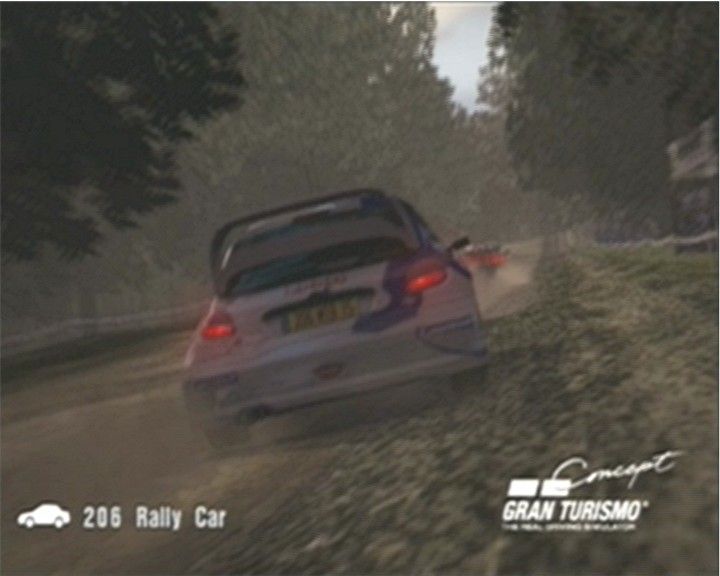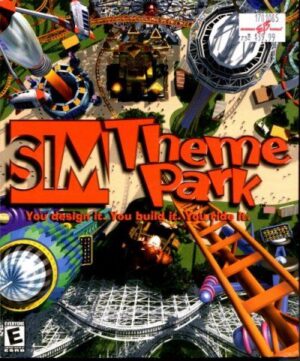Retro Replay Review
Gameplay
Gran Turismo Concept: 2002 Tokyo-Geneva sticks closely to the arcade-style fundamentals of its predecessors while introducing a fresh roster of concept and fantasy cars. Players can choose from over 100 vehicles, including bespoke concept models by Honda, Toyota, Suzuki, and Mitsubishi, as well as Sony’s own fantasy machines. The driving physics remain rooted in the meticulous attention to handling that Polyphony Digital is known for, and each concept car feels distinct, rewarding experimentation behind the wheel.
(HEY YOU!! We hope you enjoy! We try not to run ads. So basically, this is a very expensive hobby running this site. Please consider joining us for updates, forums, and more. Network w/ us to make some cash or friends while retro gaming, and you can win some free retro games for posting. Okay, carry on 👍)
The game offers five tracks drawn from the wealth of Gran Turismo history—four returning circuits from Gran Turismo 3 and one enhanced track originally featured in Gran Turismo 2. This selection may seem lean, but the varying layouts, elevation changes, and weather-neutral conditions keep races competitive and engaging. With up to six cars racing simultaneously, the sense of speed and pack dynamics is heightened, especially when tight corners and sudden straights force split-second decisions.
Rather than a sprawling career mode, Gran Turismo Concept focuses on quick access to arcade-style thrills with single-player and multiplayer arcade modes. The simplicity of the menu structure makes it easy for newcomers to hop in, while seasoned players can jump straight into head-to-head competition. Utilizing the i.Link port, up to six PlayStation 2 systems can be linked for local multiplayer, ensuring adrenaline-fueled tournaments or friendly club races.
Graphics
Visually, Gran Turismo Concept showcases some of the best car modeling on the PlayStation 2. Each concept vehicle boasts clean lines, vivid paintwork, and subtle reflections that showcase Polyphony Digital’s evolving rendering engine. Even fantasy cars by Sony and independent designers look remarkably polished, capturing futuristic design elements without feeling out of place among real-world prototypes.
Track environments benefit from the same level of detail, featuring crisp textures on tarmac, realistically painted curbs, and faithful background scenery. While occasional pop-in can occur in more densely modeled areas, the frame rate remains remarkably smooth during standard races, preserving the game’s fast-paced feel. Lighting effects, such as lens flares and dynamic shading under overpasses, further enhance immersion.
The heads-up display is unobtrusive, with a clean tachometer, speedometer, and racing line indicator that can be toggled on or off. This minimalist approach ensures that players’ attention is squarely on the road and the cars. Sound design complements the visuals, with engine roars and turbo whistles adding to the visceral sense of high-performance motoring.
Story
As a semi-expansion title, Gran Turismo Concept: 2002 Tokyo-Geneva does not feature a traditional narrative or career progression. Instead, the game’s “story” is rooted in its celebration of automotive innovation. The collaboration between Polyphony Digital, Sony, and leading car manufacturers frames each race as a showcase of what might be the future of car design.
Every concept car in the roster represents a speculative leap forward, inviting players to imagine a world where these prototypes grace real roads. This theme of “what could be” provides its own form of narrative cohesion, turning each event into a virtual auto show on wheels. While there are no cutscenes or voiced characters, the in-game menus and car galleries help build a sense of discovery.
The absence of a traditional storyline frees players to focus purely on mechanical performance and design aesthetics. For some, this open-ended structure can be more liberating than a linear career mode, as it prioritizes immediate access to the most exotic vehicles in the Gran Turismo universe. In that sense, the “story” is one of speed, style, and pure concept exploration.
Overall Experience
Gran Turismo Concept: 2002 Tokyo-Geneva offers a distilled GT experience that appeals to both casual racers and dedicated simulation fans. By paring back to core arcade modes, the game ensures accessibility without compromising the trademark realism of the series. The limited track list may leave some players craving more variety, but the depth of the car roster compensates by encouraging repeated experimentation.
The local multiplayer setup via i.Link remains one of the most exciting features of the package. There’s a communal thrill in lining up concept prototypes for a drag race or tight circuit battle in front of friends. Although online play is absent, the physical networking requirement underscores an era of console gaming that prized living-room competition.
In the context of the Gran Turismo franchise, this semi-expansion stands out as a collector’s piece—an automotive showcase rather than a sprawling simulation. It may not replace a full career-driven installment, but for those fascinated by cutting-edge concept cars and refined arcade-style racing, it delivers hours of polished entertainment. Potential buyers looking for a manageable, visually striking racing game will find plenty to appreciate in this focused GT outing.
 Retro Replay Retro Replay gaming reviews, news, emulation, geek stuff and more!
Retro Replay Retro Replay gaming reviews, news, emulation, geek stuff and more!









Reviews
There are no reviews yet.